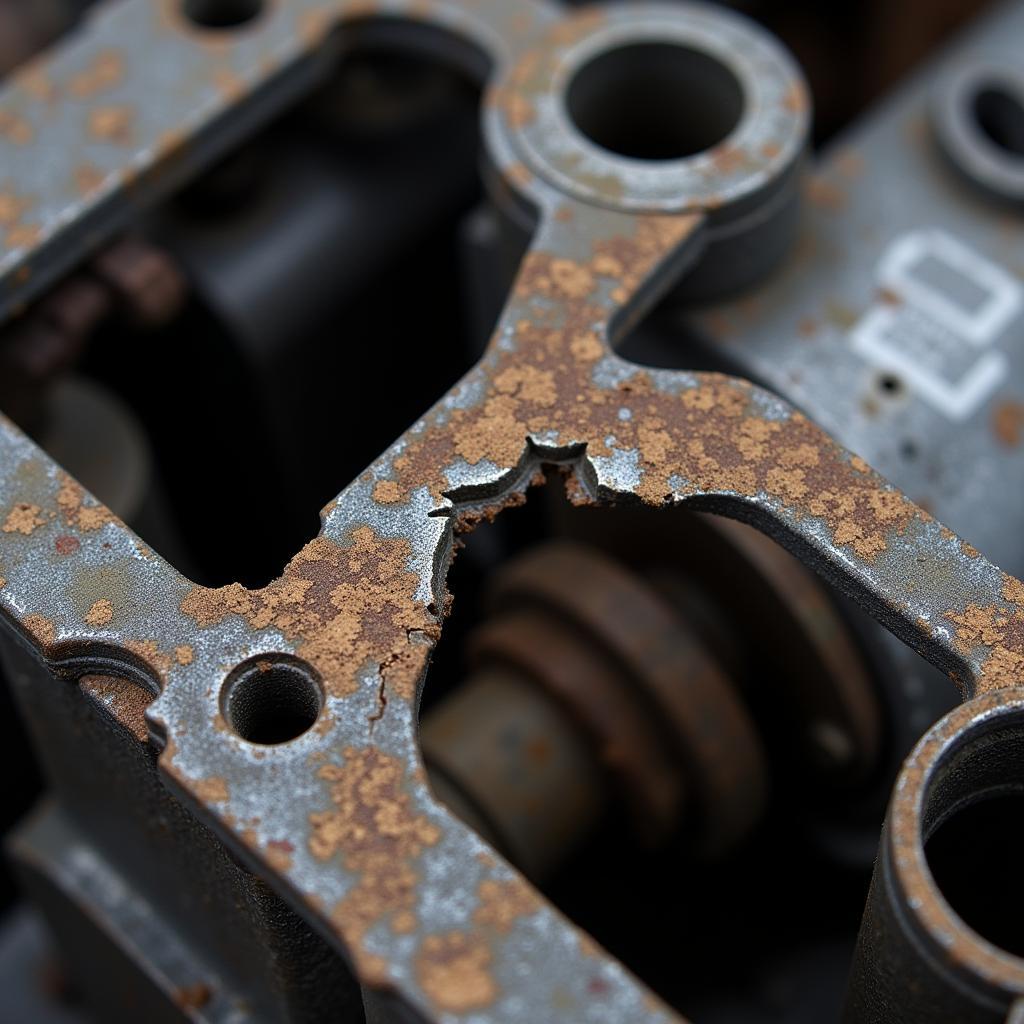You hop in your car, ready to take on the day, only to be greeted by a menacing dark puddle beneath your vehicle. An oil leak is a disheartening sight for any car owner. But before you panic, take a deep breath. Understanding the common culprits behind oil leaks can save you time, money, and unnecessary worry. This article dives into the reasons behind car oil leaks and equips you with the knowledge to tackle the issue head-on.
Common Causes of Oil Leaks
An engine needs oil to function properly, circulating through various components to lubricate, cool, and clean. Over time, the parts responsible for containing this oil can wear down or become damaged, leading to leaks. Let’s explore some of the most frequent culprits:
1. Worn Out Gaskets and Seals
Think of gaskets and seals as the guardians of your engine’s fluids. These components create a tight seal between different engine parts, preventing oil from escaping. However, age, heat, and exposure to oil additives can cause them to deteriorate, crack, or become brittle, compromising their ability to hold oil effectively.
 Worn Engine Gasket
Worn Engine Gasket
2. Damaged Oil Pan
The oil pan resides at the bottom of your engine, acting as a reservoir for the oil. Due to its vulnerable position, it’s susceptible to damage from road debris, potholes, and even rust. A dented or punctured oil pan can result in a noticeable oil leak.
3. Faulty Valve Cover Gasket
The valve cover sits atop the engine, shielding the valves and other crucial components. A gasket seals the valve cover to the cylinder head, preventing oil seepage. Unfortunately, this gasket is prone to hardening and cracking over time, making it a common source of leaks.
4. Leaking Oil Filter
The oil filter plays a critical role in removing contaminants from the engine oil. An improperly installed or damaged oil filter can create a pathway for oil to escape.
5. Crankshaft or Camshaft Seals Failure
The crankshaft and camshaft seals prevent oil from leaking out at the front and rear of the engine. Like other seals, they can wear down over time, leading to oil leaks.
What to Do If Your Car is Leaking Oil
Ignoring an oil leak is a recipe for disaster. Not only does it pose a safety hazard, but it can also lead to severe engine damage. If you spot an oil leak:
- Check Your Oil Level: A sudden drop in oil level is a telltale sign of a leak.
- Inspect for Leaks: Look for oil stains on your garage floor or driveway. Try to trace the leak back to its source.
- Consult a Mechanic: Unless you’re a seasoned mechanic, it’s best to have a professional diagnose and repair the leak. They have the expertise and specialized tools to pinpoint the source of the leak and provide an effective solution.
Preventing Oil Leaks
While some causes of oil leaks are unavoidable due to wear and tear, proactive maintenance can go a long way in preventing them:
- Regular Oil Changes: Sticking to your car’s recommended oil change schedule helps to remove contaminants and maintain the oil’s lubricating properties, reducing wear and tear on engine components.
- Inspecting Gaskets and Seals: During routine maintenance, ask your mechanic to inspect the condition of the engine’s gaskets and seals. Early detection of wear or damage can prevent costly leaks down the line.
- Using High-Quality Oil and Filters: Using high-quality oil and filters ensures optimal engine performance and reduces the risk of leaks.
Don’t Let an Oil Leak Ruin Your Day
Dealing with a car problem is never fun, but a proactive approach can make a world of difference. By understanding the causes of oil leaks and prioritizing regular maintenance, you can keep your car running smoothly and avoid those dreaded oil slicks in your driveway.
Need help diagnosing or fixing a car problem? Check out our other helpful articles:
- What are struts on a car
- Coolant leaking from bottom of car
- How to recharge a car air conditioning system
Remember, DiagXcar is your trusted source for all things automotive. We’re dedicated to providing you with the information and resources you need to keep your car running at its best!


